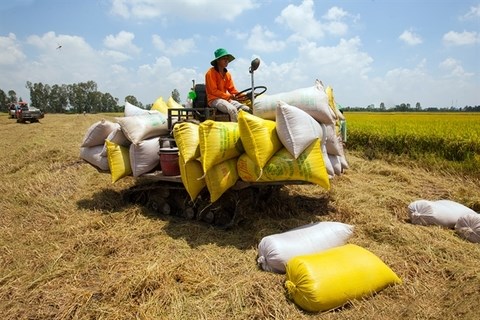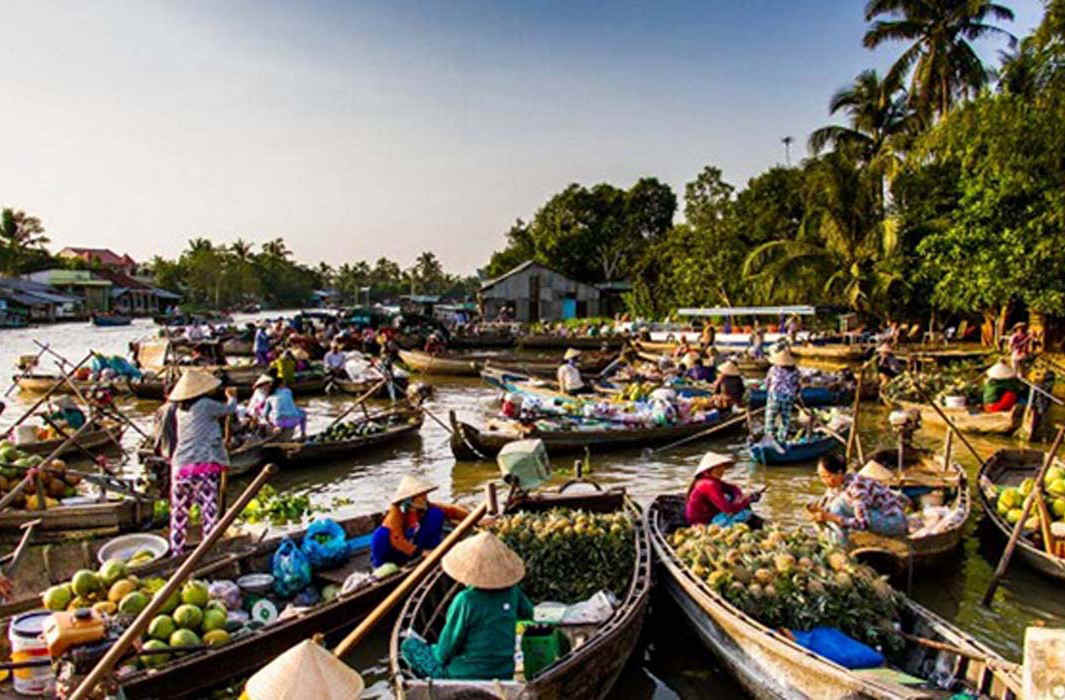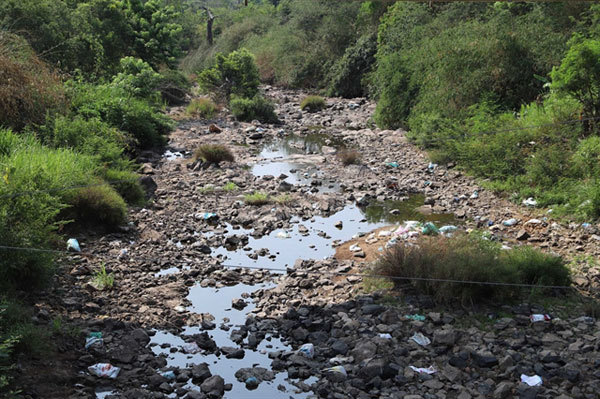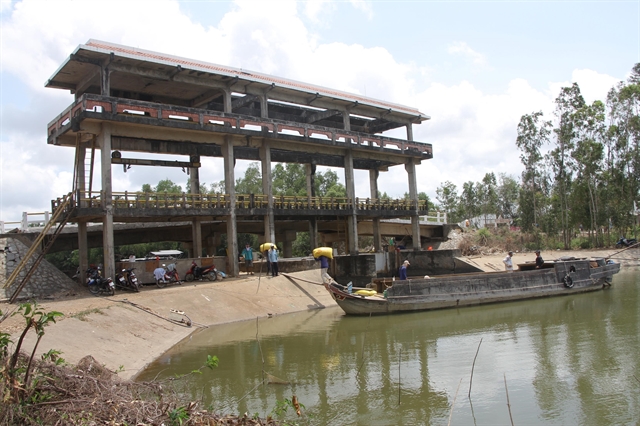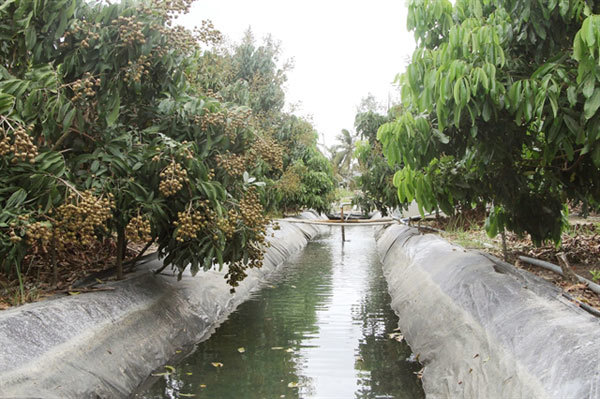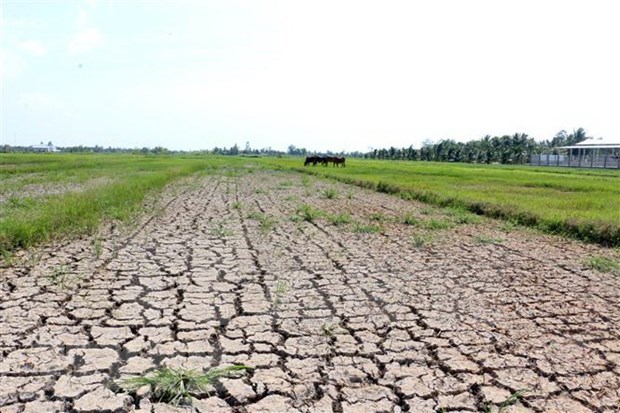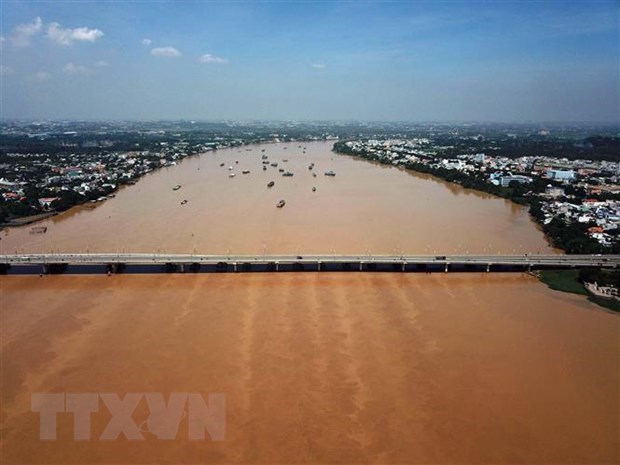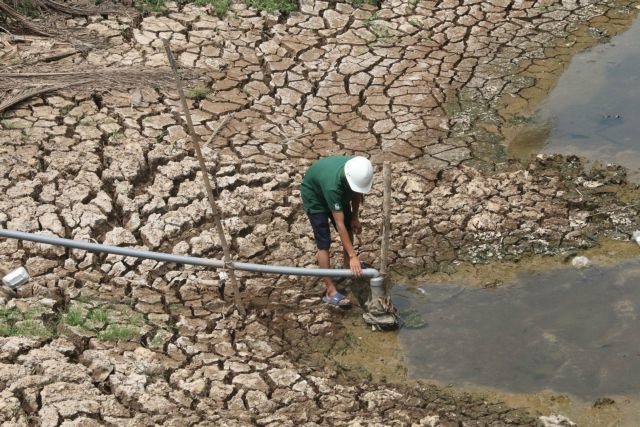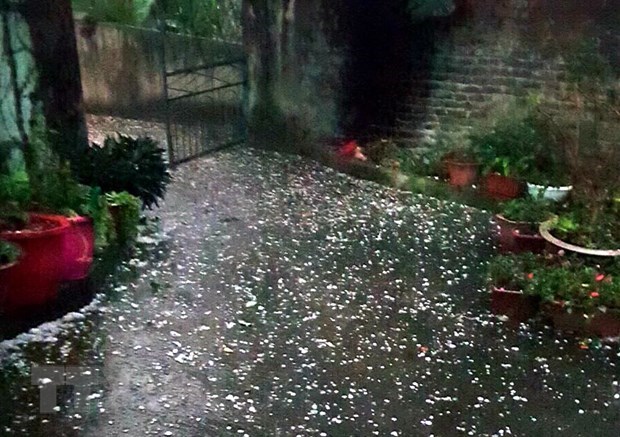- © Copyright of Vietnamnet Global.
- Tel: 024 3772 7988 Fax: (024) 37722734
- Email: evnn@vietnamnet.vn
drought
Update news drought
Localities, exporters propose lifting rice export limits
 Officials from provinces and cities in the Mekong Delta – the country’s rice granary - and rice exporters have urged the government to resume rice exports without setting limits, saying many firms face difficulties because of this.
Officials from provinces and cities in the Mekong Delta – the country’s rice granary - and rice exporters have urged the government to resume rice exports without setting limits, saying many firms face difficulties because of this.
Mekong Delta in 50-100 years will be radically different
 Scientists predict that in 50-100 years, the Mekong Delta may be one meter below the sea water level because of climate change.
Scientists predict that in 50-100 years, the Mekong Delta may be one meter below the sea water level because of climate change.
Rice export still allowed despite pandemic, natural disasters
 Deputy Prime Minister Trinh Dinh Dung on April 20 ordered advancing the export quota of 100,000 tonnes of rice from that set for May in order to ease difficulties for firms that have rice stuck at ports but are unable to submit customs declarations.
Deputy Prime Minister Trinh Dinh Dung on April 20 ordered advancing the export quota of 100,000 tonnes of rice from that set for May in order to ease difficulties for firms that have rice stuck at ports but are unable to submit customs declarations.
VN environment ministry prepares to tackle drought
 Chau Tran Vinh, deputy head of the Department of Water Resources Management under the Ministry of Natural Resources and Environment, talks about water security challenges and measures to tackle them.
Chau Tran Vinh, deputy head of the Department of Water Resources Management under the Ministry of Natural Resources and Environment, talks about water security challenges and measures to tackle them.
Ca Mau to supply clean water for drought-affected households
 The Mekong Delta province of Ca Mau plans to build more water supply systems, set up water pipes, drill bore wells, and provide water containers for households affected by drought and saline intrusion.
The Mekong Delta province of Ca Mau plans to build more water supply systems, set up water pipes, drill bore wells, and provide water containers for households affected by drought and saline intrusion.
Rice farmers in Mekong Delta told to follow sowing schedules as saline intrusion, drought continues
 Authorities have instructed farmers in the Mekong Delta to sow the summer – autumn rice crop on established schedules to mitigate the damage of drought, saltwater intrusion and disease.
Authorities have instructed farmers in the Mekong Delta to sow the summer – autumn rice crop on established schedules to mitigate the damage of drought, saltwater intrusion and disease.
Mekong Delta locals respond to drought and saltwater intrusion
 Since drought and saltwater intrusion are becoming severe in the Mekong Delta in the dry season, localities in the region have actively developed plans, scenarios, and implemented solutions to prevent and control drought and saltwater intrusion.
Since drought and saltwater intrusion are becoming severe in the Mekong Delta in the dry season, localities in the region have actively developed plans, scenarios, and implemented solutions to prevent and control drought and saltwater intrusion.
Soc Trang declares emergency due to saline intrusion
 The Mekong Delta province of Soc Trang has declared a state of emergency after drought and saltwater intrusion hit the region, strongly affecting local residents’ lives and production.
The Mekong Delta province of Soc Trang has declared a state of emergency after drought and saltwater intrusion hit the region, strongly affecting local residents’ lives and production.
Mekong Delta supplied free freshwater
 Thousands of people in the Mekong Delta Region have been given free freshwater to deal with the on-going drought and saline intrusion.
Thousands of people in the Mekong Delta Region have been given free freshwater to deal with the on-going drought and saline intrusion.
Ministry proposes US$22mil. to deal with salinity, drought
 The Ministry of Agriculture and Rural Development (MARD) has recently proposed an aid package worth 515.3 billion VND (22 million USD) to deal with drought and saltwater intrusion in 2020.
The Ministry of Agriculture and Rural Development (MARD) has recently proposed an aid package worth 515.3 billion VND (22 million USD) to deal with drought and saltwater intrusion in 2020.
Soc Trang islet farmers beat saltwater intrusion, drought by storing water
 Switching to high-value crops and adopting advanced techniques have helped farmers in Soc Trang Province’s Cu Lao Dung District cope reasonably well with the effects of climate change and ensure steady incomes.
Switching to high-value crops and adopting advanced techniques have helped farmers in Soc Trang Province’s Cu Lao Dung District cope reasonably well with the effects of climate change and ensure steady incomes.
PM approves rice export resumption, orders guaranteed food security
Prime Minister Nguyen Xuan Phuc has approved the resumption of rice export provided that food security must be guaranteed amidst the COVID-19 pandemic, drought and saltwater intrusion.
Saline intrusion in Mekong Delta likely to linger on
 Saline intrusion in the Mekong Delta will likely remain at a high level until the end of April or early May, before gradually declining, according to the National Centre for Hydro-meteorological Forecasting.
Saline intrusion in the Mekong Delta will likely remain at a high level until the end of April or early May, before gradually declining, according to the National Centre for Hydro-meteorological Forecasting.
Mekong Delta farmers switch to other crops in response to climate change
 More farmers in the Mekong Delta have restructured their crop cultivation to adapt to the effects of climate change.
More farmers in the Mekong Delta have restructured their crop cultivation to adapt to the effects of climate change.
Ministry proposes exempting charges for granting rights to exploit water resources
 Minister of Natural Resources and Environment Tran Hong Ha has proposed exempting charges on businesses for granting rights to exploit water resources for half a year, estimated at over $25 million, or for a year.
Minister of Natural Resources and Environment Tran Hong Ha has proposed exempting charges on businesses for granting rights to exploit water resources for half a year, estimated at over $25 million, or for a year.
Drought and salt water in Vietnam will be under control by 2030
 Nguyen Van Tinh, director general of the Department of Water Resources, speaks about Prime Minister Nguyen Xuan Phuc’s decision to grant VND500 billion to control salt water intrusion in eight Mekong Delta provinces
Nguyen Van Tinh, director general of the Department of Water Resources, speaks about Prime Minister Nguyen Xuan Phuc’s decision to grant VND500 billion to control salt water intrusion in eight Mekong Delta provinces
11 minor earthquakes occur in Vietnam so far this year
 Eleven minor earthquakes have occurred in Vietnam since the beginning of this year, according to the Standing Office of the Central Steering Committee for Natural Disaster Prevention and Control.
Eleven minor earthquakes have occurred in Vietnam since the beginning of this year, according to the Standing Office of the Central Steering Committee for Natural Disaster Prevention and Control.
Central Vietnam faces water shortage for summer-autumn crop
 Thousands of hectares of farmland in the central region were likely to face severe water shortages for the summer-autumn rice crop, according to the General Department of Irrigation.
Thousands of hectares of farmland in the central region were likely to face severe water shortages for the summer-autumn rice crop, according to the General Department of Irrigation.
Five provinces under emergency conditions due to saltwater intrusion receive funds from ministry
 The Ministry of Natural Resources and Environment has allocated VND800 million (nearly US$34,000) to five provinces which have declared an emergency due to saltwater intrusion.
The Ministry of Natural Resources and Environment has allocated VND800 million (nearly US$34,000) to five provinces which have declared an emergency due to saltwater intrusion.
Should water be transferred from east to west to save the Mekong Delta?
 Experts believe that it is necessary to think of measures to lead water to the Mekong Delta through a transmission network to save the area from severe drought and saline intrusion.
Experts believe that it is necessary to think of measures to lead water to the Mekong Delta through a transmission network to save the area from severe drought and saline intrusion.
